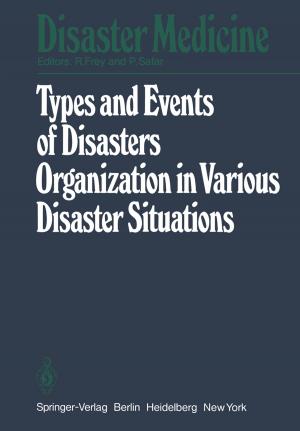Sustainable Supply Chain Management
Practical Ideas for Moving Towards Best Practice
Business & Finance, Management & Leadership, Production & Operations Management, Nonfiction, Science & Nature, Technology| Author: | Balkan Cetinkaya, Richard Cuthbertson, Graham Ewer, Thorsten Klaas-Wissing, Wojciech Piotrowicz, Christoph Tyssen | ISBN: | 9783642120237 |
| Publisher: | Springer Berlin Heidelberg | Publication: | January 27, 2011 |
| Imprint: | Springer | Language: | English |
| Author: | Balkan Cetinkaya, Richard Cuthbertson, Graham Ewer, Thorsten Klaas-Wissing, Wojciech Piotrowicz, Christoph Tyssen |
| ISBN: | 9783642120237 |
| Publisher: | Springer Berlin Heidelberg |
| Publication: | January 27, 2011 |
| Imprint: | Springer |
| Language: | English |
This book focuses on the need to develop sustainable supply chains - economically, environmentally and socially. This book is not about a wish list of impractical choices, but the reality of decisions faced by all those involved in supply chain management today. Our definition of sustainable supply chains is not restricted to so-called "green" supply chains, but recognises that in order to be truly sustainable, supply chains must operate within a realistic financial structure, as well as contribute value to our society. Supply chains are not sustainable unless they are realistically funded and valued. Thus, a real definition of sustainable supply chain management must take account of all relevant economic, social and environmental issues. This book contains examples from a wide range of real-life case studies, and synthesizes the learnings from these many different situations to provide the fundamental building blocks at the centre of successful logistics and supply chain management.
This book focuses on the need to develop sustainable supply chains - economically, environmentally and socially. This book is not about a wish list of impractical choices, but the reality of decisions faced by all those involved in supply chain management today. Our definition of sustainable supply chains is not restricted to so-called "green" supply chains, but recognises that in order to be truly sustainable, supply chains must operate within a realistic financial structure, as well as contribute value to our society. Supply chains are not sustainable unless they are realistically funded and valued. Thus, a real definition of sustainable supply chain management must take account of all relevant economic, social and environmental issues. This book contains examples from a wide range of real-life case studies, and synthesizes the learnings from these many different situations to provide the fundamental building blocks at the centre of successful logistics and supply chain management.















